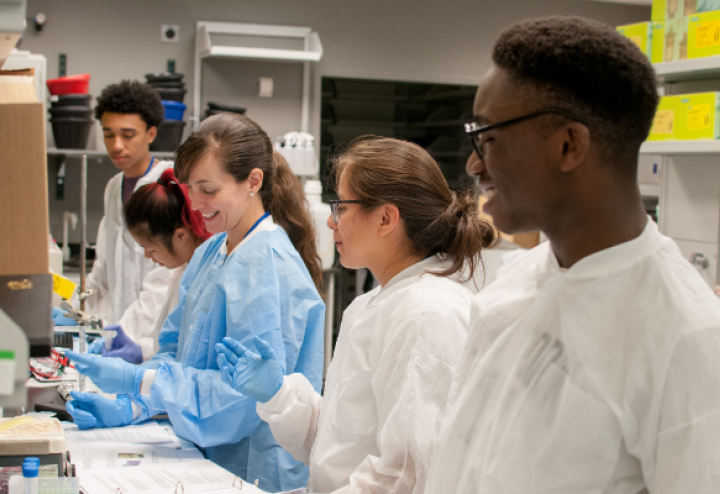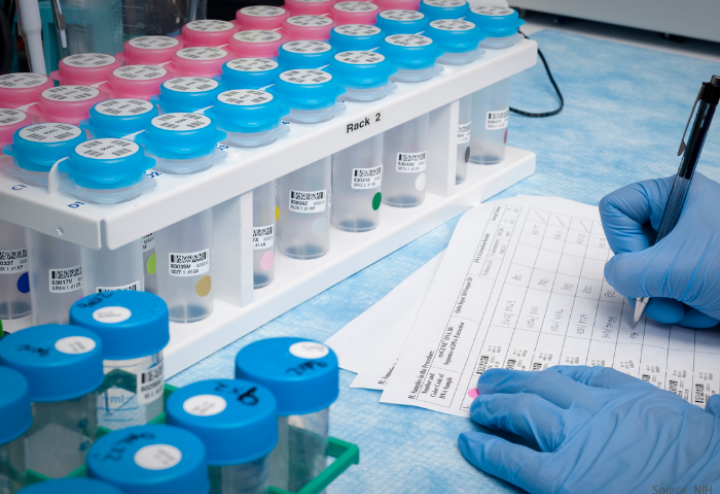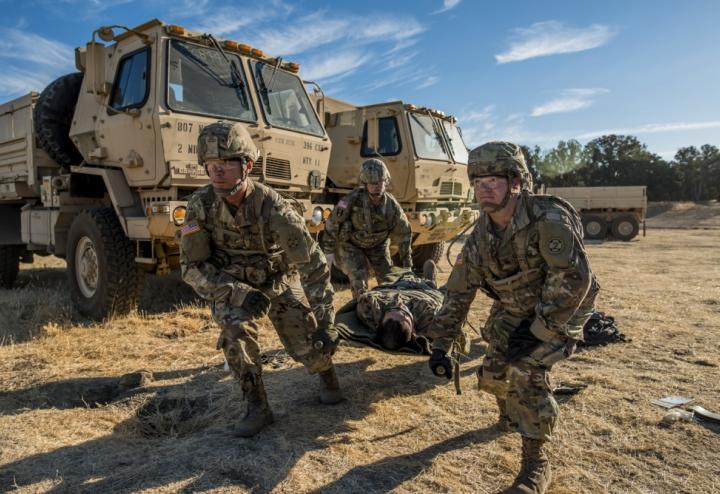Area of Research
Research Team
Location
Bethesda, MD
United States

Identifying the Problem
Soldiers deployed to war zones often need to stay alert while putting in long hours. In combat operations, they may face rigorous schedules, ranging from a few days without sleep, to many days of less than five hours a night. Ideally, a person needs to sleep seven to eight hours to fully recover mental acuity. This means that many sleep-deprived service members (sometimes as much as 40 percent) could be at increased risk of accidents.

Initial Research
The HJF-supported Biotechnology High Performance Computing Software Applications Institute (BHSAI) collaborated with federal partners to tackle this problem. They published an article in the Journal of Sleep Research in May 2018 that focused on developing an algorithm that could estimate when sleep-deprived individuals should consume caffeine, and how much, to safely restore alertness.

Safety First
Essentially, the team at BHSAI devised a way to optimize caffeine schedules efficiently. They developed an algorithm, based upon the collected data, that enables individuals to maximize the impact of stimulants by calculating multiple factors in a quick, efficient manner.

A Groundbreaking Solution
This breakthrough, along with other tools developed by BHSAI with HJF support to predict the effects of sleep loss and caffeine, has set the stage for finalizing a smartphone app that warfighters can use to personally manage their caffeine and sleep schedules. Such an app, when connected to a network, may assist commanders in planning missions more effectively by quantitatively assessing force status in real time and providing customized alerts and recommendations.